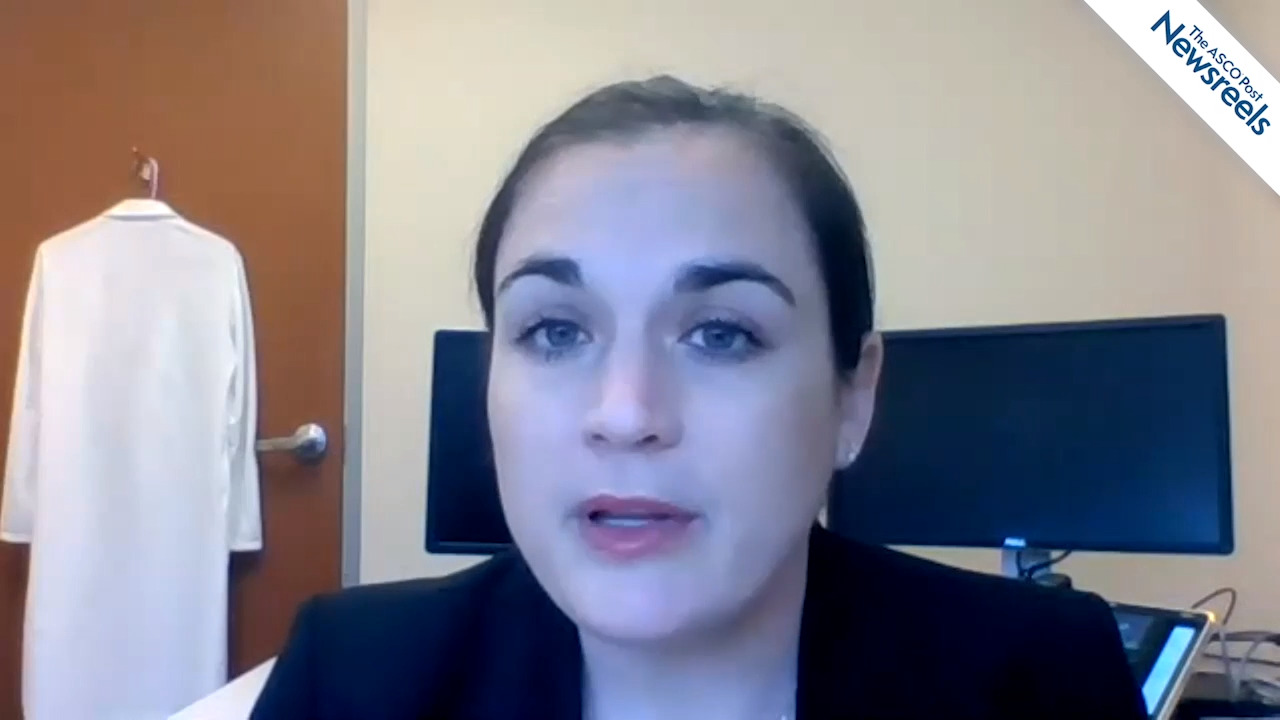Related Videos
Shannon N. Westin, MD, on Treating Endometrial Cancer With Enzalutamide, Paclitaxel, and Carboplatin
Shannon N. Westin, MD, of The University of Texas MD Anderson Cancer Center, discusses phase II results from the ENPAC trial, which showed the combination of enzalutamide, paclitaxel, and carboplatin yielded promising clinical outcomes in chemotherapy-naive advanced or recurrent endometrioid cancer (ID # 10244).
Supriya Chopra, MD, on Cervical Cancer: Reducing Late Effects of Bowel Toxicity
Supriya Chopra, MD, of Tata Memorial Centre, discusses a final analysis of the phase III PARCER trial, which showed that image-guided intensity-modulated radiotherapy is superior to conventional radiotherapy in reducing bowel toxicity in women with cervical cancer. Acute diarrhea was also reduced, with no difference in disease-related outcomes (ID# 10224).
Emily Hinchcliff, MD, MPH, on Treating Non–Clear Cell Ovarian Cancer With Durvalumab and Tremelimumab
Emily Hinchcliff, MD, MPH, of The University of Texas MD Anderson Cancer Center, discusses phase II results of durvalumab (anti–PD-L1) and tremelimumab (anti–CTLA-4) administered in combination vs sequentially for the treatment of recurrent platinum-resistant non–clear cell ovarian cancer (ID #10240).
Charles N. Landen, MD, on Newly Diagnosed Ovarian Cancer: BRCA Mutations, PD-L1 Expression, and Combination Chemoimmunotherapy
Charles N. Landen, MD, of the University of Virginia, discusses results from the first clinical trial in ovarian cancer to demonstrate that neither a BRCA1/2 mutation nor a homologous recombination deficiency improves sensitivity to a therapeutic PD-L1 blockade in patients receiving atezolizumab vs placebo combined with carboplatin, paclitaxel, and bevacizumab for newly diagnosed disease (ID #10240).
Dana M. Roque, MD, on Ovarian, Fallopian Tube, and Peritoneal Cancers: Possible New Therapeutic Option for Heavily Pretreated Disease
Dana M. Roque, MD, of the University of Maryland Medical Center, discusses phase II results showing that weekly ixabepilone plus biweekly bevacizumab may improve overall response rate as well as progression-free and overall survival for women with platinum-resistant or -refractory ovarian, fallopian tube, and primary peritoneal cancers, a population in need of treatment choices.





